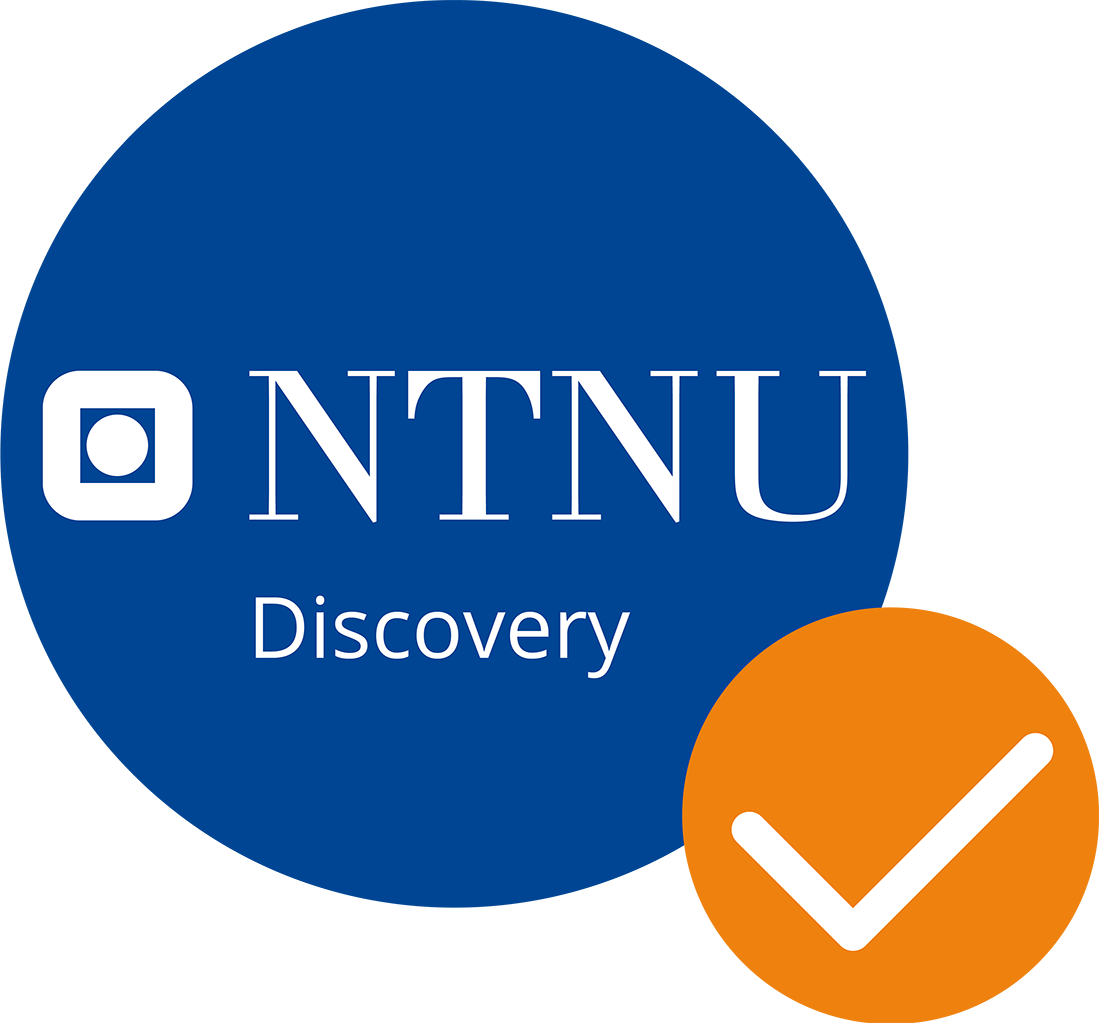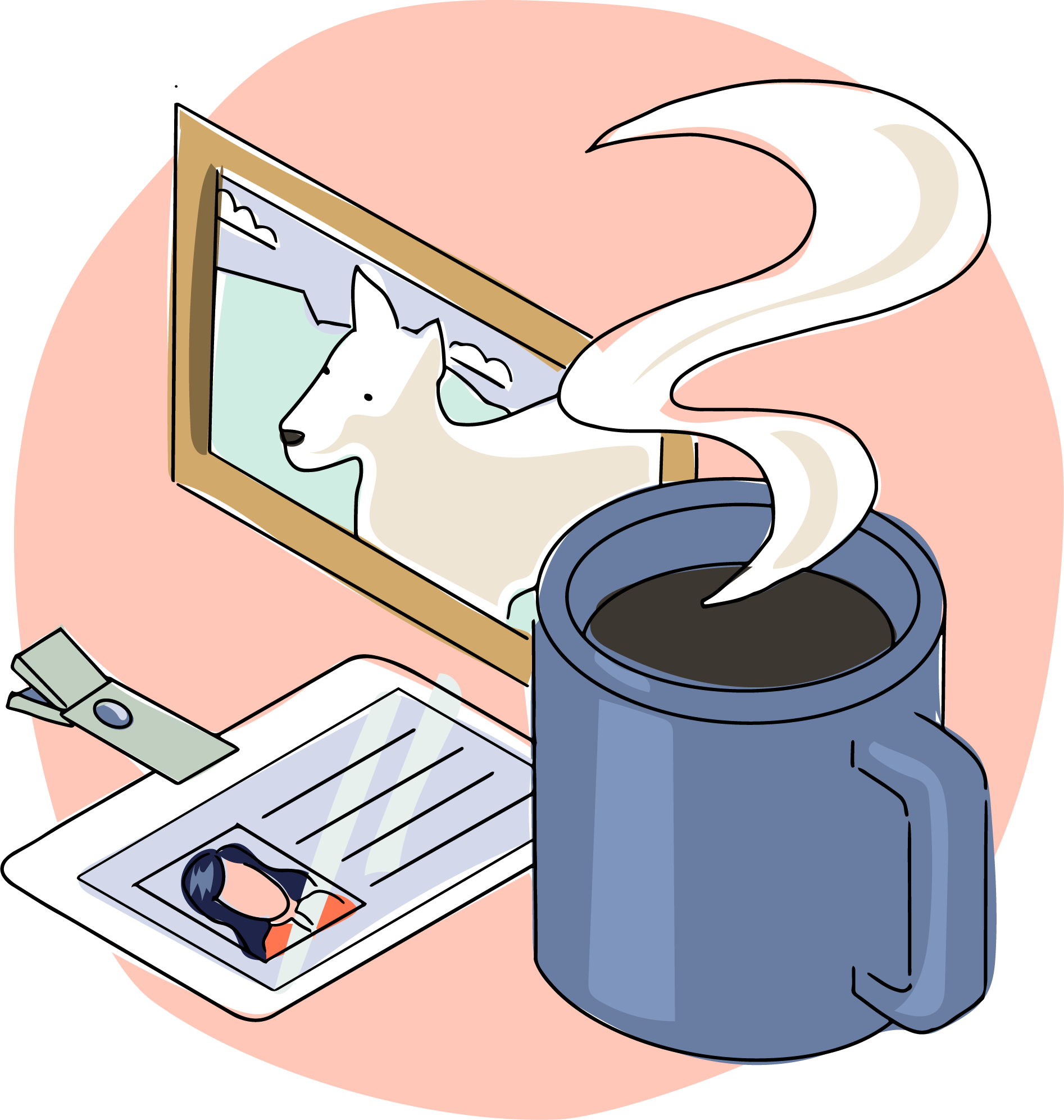Main partner: Sparebank 1 SMN
Generating profit from profit
Sparebank 1 Midt-Norge (SMN) has been a key partner for NTNU Discovery since its inception in 2011 Each year, the bank has contributed millions to further develop ambitious ideas from employees and students at NTNU and Helse Midt-Norge.

Head of Innovation and Added Value at SMN Hans Tronstad and Head of Community Dividence at SMN Hilde Sem Lykke.
Text: Per-Steinar Moen
Photo: Kristoffer Wittrup
In the venerable bank building at Søndre gate 4, we meet Hilde Sem Lykke, Leader of Community Dividence at SMN, and Hans Tronstad, Head of Innovation and Added Value. Their daily work involves ensuring that a portion of the bank’s profits benefit society and the business community in the region.
“Approximately 40 percent of the bank is owned by the local community. Part of the profit should rightfully return to the local community to develop sustainable communities where we conduct banking operations in Mid-Norway. We want this to yield a societal return on the investments we make,” says Hilde Sem Lykke.
The profits go towards purposes that create good communities, increased quality of life, expanded offerings for children and youth in sports, arts, and culture, humanitarian projects, as well as innovation and added value. Over the past two years, the bank has spent approximately NOK 100 million on developing business in the region. SMN will annually invest in at least 20 so-called “early-phase companies”. This is where NTNU Discovery is an important tool for the bank.

Hilde Sem Lykke states that they support NTNU Discovery to create new jobs.
Dreaming of a new Kahoot
SMN has been involved since the start of NTNU Discovery in 2011. In addition to providing funds, business advisor Gøran Steffensen is a regular jury member deciding which projects receive main project funding. Many of the projects that have received support have later become successful companies, creating many jobs.
“One of the first business ideas we invested in was what eventually became Kahoot,” he says. The dream is to discover more companies like Kahoot”.
The quiz company is currently valued at NOK 17.2 billion, has 500 employees in Oslo, Texas and Poland and 1.3 million paying users. However, before Kahoot became a global brand, its precursor Lecture Quiz, developed by NTNU professor Alf Inge Wang, struggled for five years to get out of the starting pit. It was in the years after receiving funding from NTNU Discovery that it really took off.
“When you’re at the stage where you think you have a really good idea, but you haven’t developed it yet and thereby have nothing to show for, it’s incredibly difficult to get funding or support. It was in this phase that NTNU Discovery was life-saving for Kahoot,” explained Kahoot founder Johan Brand to Khrono when NTNU Discovery celebrated its fifth anniversary in 2016.
Important strategic partner
SMN is currently supporting the main project with a total of NOK 5 million. So why does SMN give money to NTNU Discovery?
“In short, we support NTNU Discovery to create new jobs and give ideas the opportunity to thrive,” says Hilde Sem Lykke.
Hans Tronstad believes NTNU Discovery has a good track record. The fact that some of the projects that receive funding do not materialize is not a problem for SMN. “Discovery is really like a litmus test for a business idea, before it may become a commercial idea and a company. That’s the whole purpose of Discovery,” says Hans Tronstad.
An important driving force for the bank is to help connect NTNU with tomorrow’s business community in the region.
“Gløshaugen is home to an enormous amount of knowledge. Too little of that knowledge is commercialized and turned into new jobs,” says Hans Tronstad. He believes that there should have been more applications, not only from the traditional and technical environments at Gløshaugen and Helse Midt-Norge, but also from other disciplines, including the NTNU environment in Ålesund.
“We align with what Toril Hernes also says. We would like more of the faculties at NTNU to see the value of participating in Discovery –after all, some are more adept than others,” says Hans Tronstad. “It’s a challenge to understand that research can actually become business.”
Seed funding
He notices that it has become more difficult for entrepreneurs to raise capital from investors today than it was a few years ago.
“It’s because those with the money have more than enough with their own business. There is generally more uncertainty in the business environment,” says Hans Tronstad. “Maybe one out of ten startups succeed. That’s taking a high risk. But risk appetite is necessarily bigger in good times than in the challenging times we are experiencing now,” he says.
This is one of the reasons why the bank is now working to establish a large investment fund for innovation and added value called Såkorn 1 Midt. SMN is contributing NOK 150 million on the condition that they secure at least NOK 150 million more from other investors. The fund will exclusively benefit companies in the establishment phase in central Norway. “These may be ideas that emerge from NTNU Discovery that seek funding in the next phase,” says Hilde Sem Lykke.

Hans Tronstad wants more academics to try to commercialize their ideas.
Collaboration Against Brain Drain
Although investors are less willing to take risks in a recession, the bank is pleased to see the development of networks and environments related to start-ups and entrepreneurship.
NTNU, SINTEF and the entrepreneurial network Startup TRD (consisting of 6AM, DIGS, Faktry, Work-Work and Gründerbrakka at NTNU) are some selected partners in Trondheim that the bank collaborates with and supports.
“Collaboration is key here – we reinforce the positive things happening in the region,” says Hilde Sem Lykke.
Hans Tronstad is committed to limiting brain drain. Surveys show that half of all start-ups originating from NTNU follow Kahoot’s example and move out of the city, often to Oslo. “It’s all about making the city and the region more attractive – and getting those who spend five years at Gløshaugen to put down roots here. And that means building the kind of environments that we help to support,” he says.
In this context, NTNU is “the gold in the collaboration”. He points in particular to Gründerbrakka, where students with a business idea are given office space for one year to develop new products and companies. “This environment can really make a difference. There are 12-15 new companies here every year. To manage to keep half of them in Trondheim in the years to come, that’s success factor number one,” says Hans.
They have also worked to bridge the gap between industry and students, for example through events in collaboration with the student community. “We want more students to be present at the arenas where the business community is,” says Hilde Sem Lykke
“But NTNU should not tackle this alone; we need to engage both politicians and the business community and the actors who have now started collaborating. To succeed, we must do it together,” she says.
“Culture must be built from the bottom up,” says Hans Tronstad, pointing out that it’s not enough for someone at “City Hall to decide that we need to become more attractive”.

Hans Tronstad and Hilde Sem Lykke in Sparebank 1 SMN’s head office at Søndre gate 4 in Trondheim.
Other news
Muting rooms with mushrooms
The founders of Demp believe that the mushroom's root network can be used in everything from soundproofing panels to replacing asphalt.
Viruses Built to Target
Rajeevkumar Raveendran Nair at the Kavli Institute of Neuroscience has received NOK 1 million to further develop transport viruses that can transport gene-therapy drugs, but only activate them in specific cells. EDGE-Tx is the virus that may become an important tool in the fight against Alzheimer’s disease.
Contact:
Project Manager
Jan Hassel
Email: jan.hassel@ntnu.no
Telephone: +47 906 53 180
Office: Main building
Håvard Wiebe
Email: havard.wibe@ntnu.no
Telephone: +49 414 73 768
Office: Main building

Ta idéen din videre



